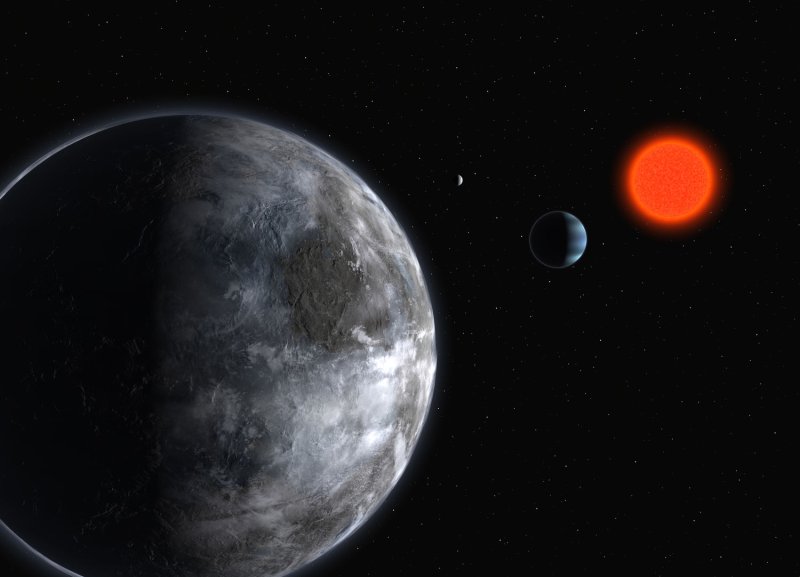Astronomers have discovered the most Earth-like planet outside our Solar System, pictured in an artist's rendering, an exoplanet with a radius only 50% larger than the Earth and capable of having liquid water, announced by the Eupropean Southern Observatory on April 25, 2007. Using the ESO 3.6-m telescope, a team of Swiss, French and Portuguese scientists discovered the planet about 5 times the mass of the Earth that orbits a red dwarf, already known to harbor a Neptune-mass planet. (UPI Photo/European Southern Observatory) |
License Photo
HEIDELBERG, Germany, Nov. 18 (UPI) -- European astronomers say they've discovered the first "alien" exo-planet in our Milky Way, one that originated outside our galaxy and was later captured by it.
Researchers writing in the journal Science say the Jupiter-size planet is part of a solar system that once belonged to a dwarf galaxy that was devoured by our own galaxy, the BBC reported Thursday.
The planet, HIP 13044 B, is orbiting a star nearing the end of its life 2,000 light years from Earth.
Almost 500 exoplanets outside our Solar System have been discovered, but all of those so far discovered are indigenous to our own galaxy, the astronomers say.
HIP 13044 B is different because the planet circles a sun in a group of stars called the "Helmi stream" which are known to have once belonged to a separate dwarf galaxy that was consumed by the Milky Way between six and nine billion years ago.
The planet would have been formed in the early era of its own solar system before it was incorporated into our galaxy, researchers say.
"This discovery is very exciting," Rainer Klement of the Max Planck Institute for Astronomy in Heidelberg, Germany, said.
"For the first time, astronomers have detected a planetary system in a stellar stream of extragalactic origin," he said.
"This cosmic merger has brought an extragalactic planet within our reach."















